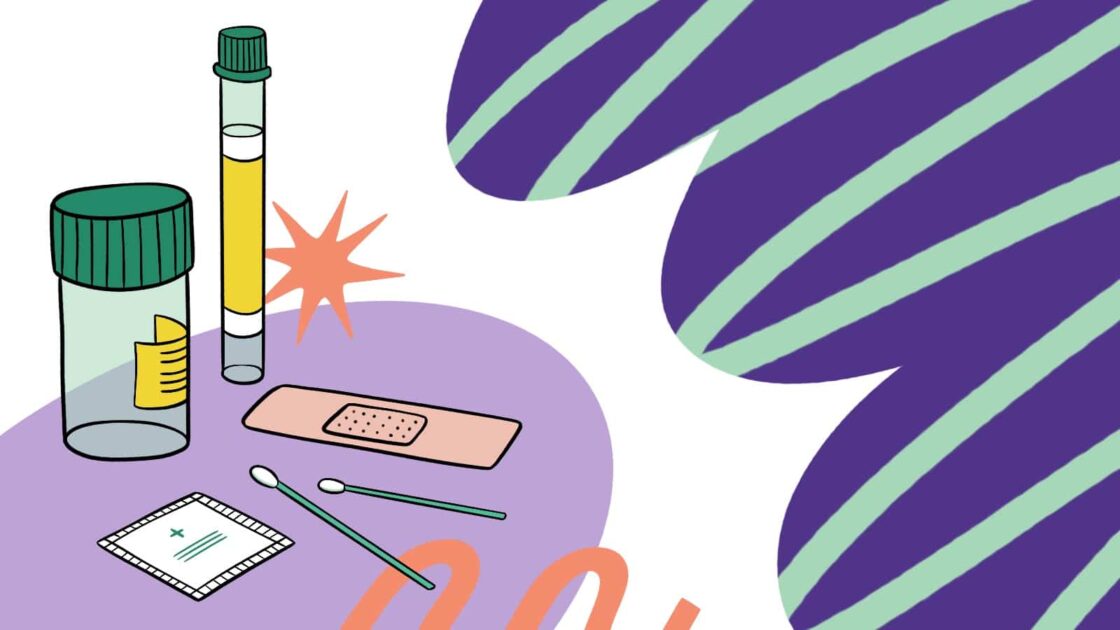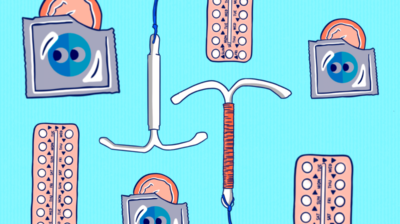Why I go for STI tests regularly even if I’m symptom-free
While Lisa has found that getting an STI test is easier than expected, she feels more education is needed to reduce stigma.

My first time getting STI checked was when I moved away from home for university. I knew routine checks were important, so despite having no symptoms, I wanted to ensure I was negative when starting this new chapter.
One thing that surprised me was that some STIs can take between a few weeks and a few years for symptoms to show. STIs such as Gonorrhoea and Chlamydia can take up to 3 weeks to show signs, whereas genital warts may not appear for years.
My experience getting tested
I have tried both in-person and at-home tests. The in-person tests I’ve done were a full STI check with a doctor and a mini STI check with a nurse. Both tests were carried out at my university’s health centre.
The full test was my first time getting checked for an STI, so naturally, I was a bit nervous. Nowadays I view it as being the same as any other medical check-up. The clinic’s website told me what to expect during the examination and it matched up pretty well with my experience of both the full STI test and the mini STI test.
During the full check, the doctor asked if I had any symptoms and what types of sex I had, e.g. vaginal, oral, anal, etc. In my case, the doctor took a throat swab, a vaginal swab and a blood test. These three samples allowed them to test for eight common STIs and also check for Candida and Bacterial Vaginosis.
During the mini test, the nurse took a vaginal swab and throat swab to test for Chlamydia, Gonorrhoea and Trichomonas. After speaking to some friends, I realised that some people don’t get tested as they fear being judged by the doctor or nurse. In my experience, there was no judgement from the medical professionals whatsoever.
Another fear my friends had is the invasiveness of the exam. Thankfully I found that the process is both painless and quick. On both occasions, I received my results via discrete text after ten days stating that I had tested negative for all STIs. Had I tested positive for any, I would have received either a call or text asking to discuss my results or if I wished, I could return to the clinic to chat about the results with the doctor. The clinic would have also organised any treatment or referrals required.
Where can I get tested?
Across the country, there are loads of places to get in-person STI checks. Getting tested in rural areas can be a bit more challenging, so if accessing an in-person clinic is a challenge for you, I recommend checking out a free home testing kit such as one from SH:24. The kits are available across Ireland and are a great option if you are 17+ and have no symptoms.
Colleges and HSE public STI clinics are the most common places to get tested for young people. Here is a list of free HSE public STI clinics around the country. For me, the free clinic times were difficult to make as I didn’t want to skip lectures so I decided to pay to get tested through my university instead. A full list of college STI clinics and relevant information can be found here.
How much does it cost?
Cost is, of course, a factor that can affect where you decide to get checked. The HSE’s STI clinics are free, however, if you would prefer to pay and take a test at a time that suits you, you can get checked at many GP practices or at your college.
My full STI test was €60 and my mini STI test was around €15, but this was a S.H.A.G. (Sexual Health And Guidance) week promotion. Having looked online, it seems that most colleges charge closer to €15 for their STI checks.
How I wish STI testing was discussed in sex-ed
Like many Irish women, I attended a convent secondary school. As you can imagine, my sex ed class was missing a lot of valuable information. My first sex ed. class was in second year and this only taught us about periods (which was certainly a few years too late for most girls).
My second sex ed class was in transition year and finally, we were taught about sex. Considering 53% of males and 23% of females first encounter porn before the age of 13 and that the average age for an Irish person to have had a sexual experience is 17, I believe that 16 is far too late for what might be a person’s first sex education class.
I don’t think we should wait for three years of porn exposure to go by before finally teaching teenagers about safe sex. In my school, teachers stayed as far away as they could from the sex topics in S.P.H.E.
In my sex ed class, all we were taught was how to put on a condom to avoid catching and spreading STIs. Looking back now, I wish that the visiting nurse had taken the opportunity to move toward reducing the stigma around STIs. I know too many people who still view them as being ‘dirty’ and would prefer to not get tested so that they can avoid the testing process and having to deal with a potentially positive result.
I think it would also have been great if we were taught that STIs are quite simple to treat once they’re caught early. In most cases, it’s just a course of antibiotics. Finally, I believe that communication is key in sex and relationships and that also goes for communication on STIs. Teaching young people how to communicate with their partner(s) about both STIs, and if they test positive for an STI is vital if we want to reduce the stigma around the topic.
This piece is part of ‘Under the Sheets‘, the National Action Panel’s Voices campaign to raise awareness of the importance of unbiased fact-based inclusive sex education for all young people. Access more information and supports for sexual health.
Illustrations by Ezra Pinkerton.
Feeling overwhelmed and want to talk to someone?
- Get anonymous support 24/7 with our text message support service
- Connect with a trained volunteer who will listen to you, and help you to move forward feeling better
- Whatsapp us now or free-text SPUNOUT to 50808 to begin.
- Find out more about our text message support service
If you are a customer of the 48 or An Post network or cannot get through using the ‘50808’ short code please text HELLO to 086 1800 280 (standard message rates may apply). Some smaller networks do not support short codes like ‘50808’.






